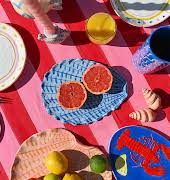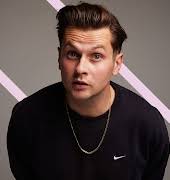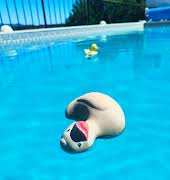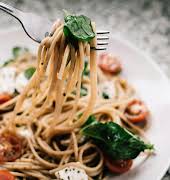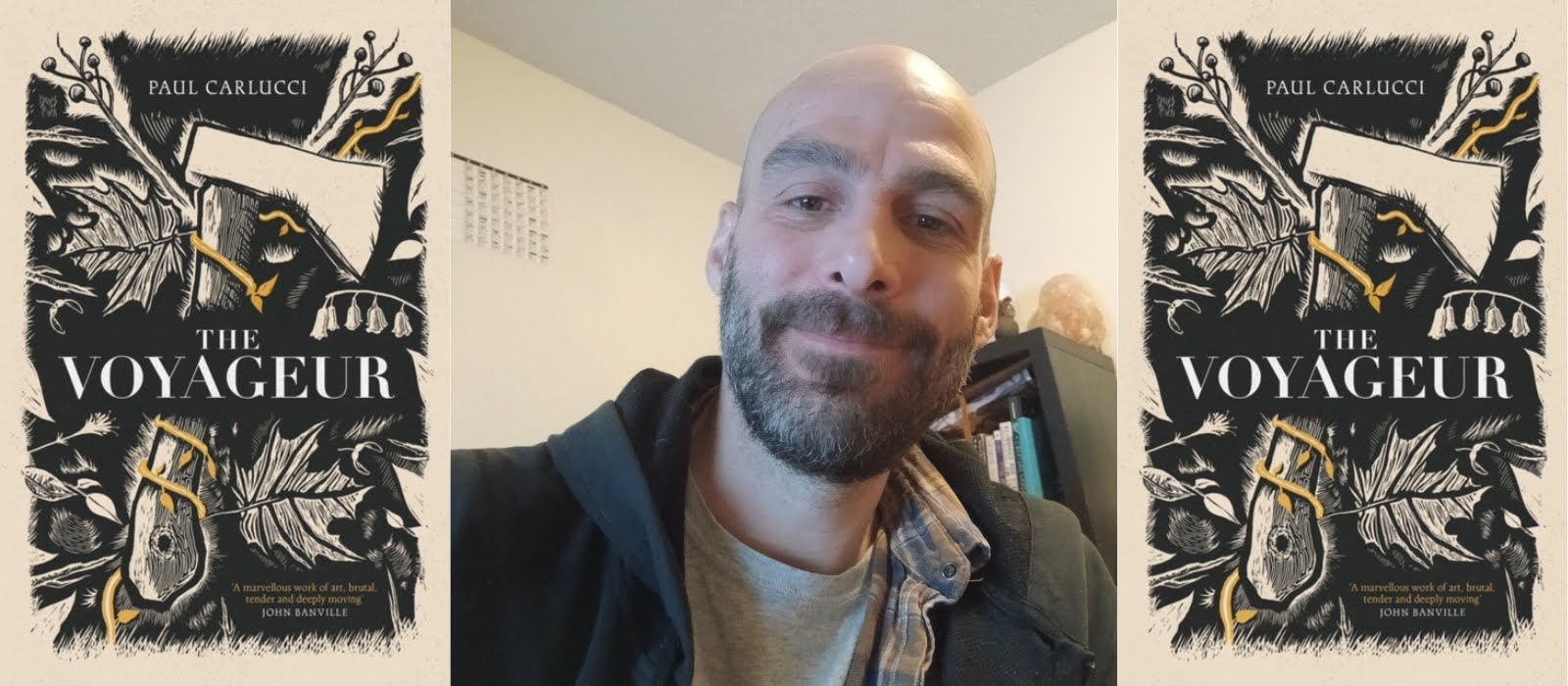Paul Carlucci: ‘There’s no better investment than buying books and letting yourself be swept away’
Ahead of the release of Paul Carlucci’s debut novel, The Voyageur, we caught up with the author to chat about everything from his writing process to his literary influences.
Earlier this month, we shared an extract from Paul Carlucci’s debut novel, The Voyageur, and now we’re getting the chance to dig a little deeper into this Canadian author’s inspirations and writing habits.
The Voyageur—which will be released on 18 April—centres around Alex, a motherless stockboy in 1830s Montreal, waiting desperately for his father to return from France. Serge, a drunken fur trader, promises food and safety in return for friendship, but an expedition into the forest quickly goes awry.
At the mercy of men whose motives are unclear, Alex must learn to find his own way in a world where taking advantage of others has become second nature. Floundering, hopelessly vulnerable, Alex feels his luck begin to change when he falls into the path of the brilliant Dr Beaumont, who appears to offer the fatherly protection Alex so passionately seeks. But as the months pass, Alex suspects that the good Doctor’s motives are not all they seem. Will Alex have to abandon his humanity to survive?
Read on for our interview with Paul Carlucci…

Did you always want to be a writer/author?
Not quite always, but definitely since I was pretty young, probably around ten or eleven. I think that was when I first started writing “novels” by taking pages out of Hilroy notebooks, filling them with silly stories and drawings, and stapling them down the left-hand edges.
What inspired you to start writing?
Nothing singular, I don’t think. What I remember first is a real enjoyment of reading, of staying up late with books or furtively devouring them in classrooms. The desire to write, I’m pretty sure, was initially just a desire to imitate.
Where did the idea for this book come from?
The kernel came from the true story of Alexis St. Martin and William Beaumont. The former was a young fur trader accidentally shot in the stomach, the latter the surgeon who saved his life. After the injury, St. Martin lived with Beaumont for a while and was the subject of medical experiments that confirmed the presence of hydrochloric acid in the stomach, which was earlier theorised by chemist and physician William Prout. I heard about that for the first time on Radiolab. The whole thing was compelling in its strangeness, and I pictured myself happily devoting a lot of time to pulling a story out of it.
Tell us about your writing process.
For The Voyageur, I had to do a lot of research, so it was important to balance reading books and articles with doing at least a little writing during the initial phases. I was worried I’d lose the spark if I spent too much time just reading and taking notes. I was also starting to think about the story a lot, seeing little ribbons of it stream across my mind, so I knew I had to get typing.
I accepted that I’d have to go back and make a lot of cuts and additions, which isn’t uncommon for me, and while it can sometimes be tedious, in this case it was actually pretty helpful because I had to write in a tone and aesthetic that I wasn’t especially familiar with. I’d say my writing is generally a lot more grammatically standard than what’s in The Voyageur, and to develop an ear for all the inversions, comma splices, and omitted punctuation, I had to fiddle a whole lot, particularly at the outset, when I was first trying to learn the voice.
What comes first, the plot or the characters?
Differs from project to project. Sometimes, I’ll have a clear view of a situational starting point without knowing much about the characters, other times the inverse. Very occasionally, I get a glimpse of both. Either way, I usually start trying to imagine an ending after I write the premise, accepting that I’ll have to go back and make a heap of changes, and then I wind up tinkering with plot and character as I move forward, almost constantly having to go back and weave in something new.
Ultimately, I think I prefer this approach, despite its many frustrations, because I’m maybe too impatient to work on broad outlines when I know I can have more fun writing the story at the level of its thready details. I’ve also learned that I probably won’t stick to outlines anyway because mine are pretty lame, so my energy seems better spent on writing sentences and paragraphs in the manuscript while keeping a sidecar notebook of judgments and predictions.
For this book, the situation came first—the medical experiments, the injury, and the role injury plays in power dynamics, which is a fascinating angle—and I developed the characters and the rest of the storyline after I started writing, generally scribbling stuff in notebooks or texting myself ideas to push it along.
What did you learn when writing this book?
Quite a bit! I learned a lot about the living conditions of the time, odd little quotidian details like the fact that people used rags and salt, sometimes even sugar, to clean their teeth. I also deepened my knowledge of Canada’s colonial practices and history with slavery.
I learned a lot about the fur trade and how its economy drove so much of the colonial activity in what is now North America. I had to learn more about American history and the country’s colonial practices as well. Some of the weirdest stuff was related to Alex’s injury and the experiments Beaumont conducted. I mean holy smokes.
Finally but most importantly for my future work, I got to learn a lot about craft from my excellent editor, Mark Richards, and my stellar copy editor, Sarah Terry. I also got to work with a great proofreader, Madeleine Rogers, who happens to be a translator; even though I’m half-French, my grip on the language is pretty loose, and she saved me from a number of embarrassing grammatical slips, teaching me some basics I should’ve learned a long time ago.

Do you have any quirky habits when writing?
I sometimes listen to death metal when I write, particularly the album Conduit by Proscription.
The first book you remember reading is…
Stephen King’s Pet Sematary is the first one I specifically remember; I think I was around eleven or twelve, and it was primordially horrifying. God, my bedroom at night. But there’s a blur of other stuff before then: Beverly Cleary, Doctor Seuss, Christopher Pike, Goosebumps. Unfortunately, I can’t remember specific titles and moments from those earlier experiences.
Your favourite Irish author is…
I have a really tough time with favourites, but at present, I’d say Keith Ridgway. I really liked Hawthorn & Child and A Shock. Fantastic mixes of humour, ache, and literary experimentation.
The book you gift everyone is…
I think the book I’ve gifted the most often is In the Distance by Hernan Diaz. It’s an acid western, or anti-western, and it’s just the most beautiful, immersive reading experience. Amazing.
Three books everyone should read:
1) The Book of X by Sarah Rose Etter for its brilliantly lyrical approach to surrealism.
2) Norma by Sarah Mintz for its hilarious, thoughtful, and melancholic examination of grief, loneliness, and newfound companionship.
3) Entangled Life by Merlin Sheldrake for its wonderful exploration of fungi and all they can offer humanity and the rest of the world.
You overcome writer’s block by…
Most times, I do menial things that distract my body but not my mind, like washing dishes or gasping through interval workouts. Other times, I sit down with a notebook and actively try to hash out a problem using point form writing.

Do you listen to music when you write?
Yes, often. As I write this, I’m listening to Skylon by Ott, a psybient project. I also sometimes listen to similar artists like Carbon Based Lifeforms or Klaus Schulze. Farther afield, I like listening to some heavier music while I write, like Ash Borer’s self-titled debut or Grief Ascension by Müür. Very occasionally, I listen to classical music while I work, just a YouTube mixer or something like that.
The best money you ever spent as a writer was on…
It’s an ongoing expense, and it’s books. There’s no better investment than buying a lot of books so you can read often, widely, and analytically. At the same time, shutting down your critical thinking and letting yourself be swept away is very inspiring as well.
The three books you’d bring with you to a desert island are…
1) Tenth of December by George Saunders because, well, come on: George Saunders! Tenth of December!
2) Skein Island by Aliya Whiteley because this question’s island theme seems like a great opportunity to mention this fantastic gem of a book, full of humour and strangeness.
3) The Norton Anthology of Short Fiction, edited by Richard Bausch and R. V. Cassill, because variety is a good antidote to monotony, and these Norton collections have pretty much everything you could want while you wait for an errant steamship or lucky flyover.
A quote you love is…
Kurt Vonnegut: “Make your characters want something right away, even if it’s only a glass of water.” I don’t always do that, but I probably should.
The book you always return to is…
A book I’ve often returned to is Ablutions by Patrick DeWitt. It’s flush with amazing sentences, makes me laugh out loud, and also really kicks me in the diaphragm.
One book you wish you had written is…
Lonesome Dove because while I actually loved it overall, I found so many of the comma choices to be really halting and distracting. I’m all for non-standard punctuation, but I just didn’t understand the metre in a lot of the sentences. I’d transcribe what’s already and brilliantly there, but I’d get sneaky with his percussion. I also might signal the omniscient point of view a few pages earlier than he does; it’s used to fantastic effect throughout the book, but we do seem a little firmly in Gus’s POV at the outset, and the first transition to other characters is somewhat jarring.
How do you use social media as an author?
I have a Goodreads account, and I invite readers to follow me there. They can ask me questions and check out the books I’m reading and enjoying. I follow people back and get an appreciation of what they’re reading and how they think about books.
Should books be judged by their covers? How did you pick yours?
Hm, I don’t think books themselves should be judged by their covers, but I do think their covers should be judged, as should the broader design, including the dimensions of the format. I think packaging is part of the experience, and I’ve especially started feeling this way since I’ve been reading more e-books. When I go back to a physical book, I really notice things like how it fits in my hands, what the font looks like, how evocative the cover is, and what’s on the back and inside flaps (if there are any). These features don’t make or break a story by any means, but they’re nice bonuses, kind of like gorgeous album art in the music world.
The amazing cover of The Voyageur was done by illustrator Matt Burne. It was the first and only option Swift presented to me, and I absolutely love it. There was zero question of asking to see other ideas. I think the press felt the same way. Alex Billington handled the rest of the design and I love all his choices as well.
Do you find it hard not to procrastinate when writing?
I’m actually doing that right now. I have an off and on relationship with procrastination. In general, I’m pretty obsessive, and I like to get stuff done yesterday, if only so I can stop anxiously thinking about it, but when I’m stuck or unsure, as I am with a project right now, I tend to find myself doing other things when I’ve set aside time for writing.
The best advice you’ve ever gotten is:
Always push myself to expand my canvases. I bristled when it was given to me, but it was absolutely correct, and once I accepted it, I was able to move from a creatively idle place to one of working on another engaging project.
Your work space is…
A desk in the second room of our apartment. I’ve got some decent desktop speakers, some reference books, a small stack of notebooks and assorted junk, and some artwork on the walls and knickknacks on the desk. Behind me, I have some guitars and a keyboard I sometimes fiddle with when I’m trying to think things through.
Your favourite literary character of all time is…
Such a tough one. I’ll give into recency bias and say Nathaniel Stromler from Wraiths of the Broken Land by S. Craig Zahler. I love the way Nathaniel struggles to honour his pacifist principles in the face of heinous violence. The character is a deeply captivating microcosm of how challenging it can be to maintain humanist sensibilities in a world that’s often devoid of any morality at all.
‘The Voyageur’ by Paul Carlucci will be published by Swift Press on Thursday 18 April


